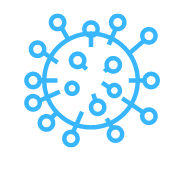What is Nasal decongestants? Understanding Nasal Decongestants
What is Nasal Decongestants?
Nasal decongestants are medications that are used to relieve nasal congestion, often caused by allergies, colds, or sinus infections. They work by shrinking the blood vessels in the nasal passages, which reduces swelling and opens up the airways for better breathing.
Nasal decongestants come in various forms, including nasal sprays, nasal drops, and oral medications. Some common types of nasal decongestants include oxymetazoline, phenylephrine, and pseudoephedrine.
These medications provide temporary relief from nasal congestion and can help alleviate symptoms such as stuffy or runny nose, sinus pressure, and difficulty breathing. However, they should not be used for extended periods of time as they can cause rebound congestion or dependence.
It is important to note that nasal decongestants should be used as directed and should not be used by individuals with certain health conditions such as high blood pressure, heart problems, or thyroid disorders without consulting a healthcare professional.
Understanding Nasal Decongestants
Nasal decongestants are medications that help relieve congestion in the nasal passages. They work by narrowing the blood vessels in the nasal membranes, which reduces swelling and opens up the airways, making it easier to breathe through the nose.
These medications are commonly used to treat symptoms of nasal congestion caused by allergies, sinusitis, or the common cold. They can provide temporary relief from symptoms such as stuffy or blocked nose, sinus pressure, and post-nasal drip.
Nasal decongestants are available in several forms, including nasal sprays, nasal drops, and oral tablets or capsules. The nasal sprays and drops are directly applied into the nostrils, while the oral medications are taken by mouth.
It is important to use nasal decongestants as directed and not to exceed the recommended dosage or duration of use. Prolonged or excessive use of nasal decongestant sprays, particularly those containing certain ingredients like oxymetazoline, can lead to a condition called rebound congestion. This occurs when the nasal passages become even more congested after the medication wears off, requiring higher doses or more frequent use to maintain relief.
Some common side effects of nasal decongestants include temporary stinging or burning sensations in the nose, dryness, and sneezing. In rare cases, they may cause more severe side effects such as increased heart rate, elevated blood pressure, or allergic reactions.
It is important to consult a healthcare professional before using nasal decongestants, especially if you have any underlying medical conditions or are taking other medications. They can determine the best treatment option for your specific needs and advise on proper usage and potential interactions.
In summary, nasal decongestants are medications that help relieve nasal congestion by reducing swelling and opening up the nasal passages. However, they should be used cautiously and according to the recommended guidelines to avoid rebound congestion and other potential side effects.
Overview of Nasal Decongestants
Nasal decongestants are medications that help relieve nasal congestion or stuffiness. They work by narrowing the blood vessels in the nasal passages, which reduces inflammation and swelling in the nasal tissues. This allows for improved airflow and relief of congestion symptoms such as a stuffy or blocked nose.
Nasal decongestants come in various forms, including nasal sprays, nasal drops, and oral medications. Nasal sprays and drops are directly applied inside the nostrils, while oral medications are taken by mouth.
Nasal decongestant sprays provide fast relief and are typically used for short-term relief of congestion caused by conditions like the common cold or allergies. However, they should not be used for more than a few days, as prolonged use can lead to a rebound effect, where the nasal congestion worsens after discontinuing the medication.
Oral nasal decongestants are available in pill or liquid form and provide longer-lasting relief. They may be more suitable for chronic nasal congestion or conditions like sinusitis. However, oral decongestants can have side effects such as increased heart rate, increased blood pressure, and insomnia. It is important to talk to a healthcare provider before using oral nasal decongestants, especially if you have any underlying medical conditions or take other medications.
It is worth noting that nasal decongestants should not be used by individuals with certain medical conditions such as uncontrolled high blood pressure, heart disease, or glaucoma, unless directed by a healthcare provider.
Overall, nasal decongestants can be an effective short-term solution for relieving nasal congestion, but they should be used according to the instructions and for the recommended duration to avoid potential side effects. It is always advisable to consult with a healthcare professional before starting any new medication.
